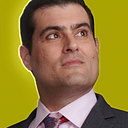MIT Professor David Kaiser’s Quantum Legacies
David Kaiser returns to the INTO THE IMPOSSIBLE podcast to discuss his new book, “Quantum Legacies: Dispatches from an Uncertain World.” A colleague as well as a friend, David was on the very first episode of the podcast!
We began the interview by talking about Professor Stephen Hawking, who greatly influenced David (and all physicists, really). On the occasions when he was in the same room with Hawking, David says, “I don’t want to call it an aura, I don’t want to make it mystical. But there was just a sense that this was not an ordinary encounter. A sense of this is an unusual thinker in very unusual situations, and that really stuck with me.”
David’s insight that Hawking’s masterful book “A Brief History of Time” was a seemingly unattainable mix of compelling memoir and explanation of complex science to which both he and I aspire is spot on. David’s series of essays in “Quantum Legacies” is a worthy submission, as I hope is my book, “Losing the Nobel Prize.”
David calls his involvement with the Cosmic Bell experiment a highlight of his career and his life. As part of that collaboration, I moderated a panel discussion hosted by The Arthur C. Clarke Center for Human Imagination, which you can watch here. NOVA also made a documentary about the project, called Einstein’s Quantum Riddle, which you can watch here.
The theme of collaboration came up many times in our discussion. How to stay on the cutting edge of his scientific fields of study? Work with a great team of people. How to write popular books about recent history? Find the right sources. How can humanity make it through the COVID-19 pandemic? By using a multidisciplinary and open-source approach.
I was struck by David’s ability to consider the history of science and scientists in his every answer throughout the interview. He is ideally suited to his illustrious academic career as professor in multiple departments as well as an associate dean. He is also able to admirably communicate the ideas behind his complicated physics experiments in meaningful yet easily understood ways — for example, the use of The Newlywed Game as a metaphor for quantum entanglement!
David is not on social media and I wonder if that has something to do with his clarity of thought, productivity, and eloquence. He is one of few beacons in a time where we should all be worried about losing the written word — to the tweet, the text, the like, the share.
As David says, there is no replacement for physical books or chalk on a chalkboard. With MIT leading the way in terms of online learning even before the stay-at-home orders, we pondered the future of AR/VR professors. How many more remarkable students could we be reaching using these technologies?
This is a longer episode but I’m pleased we had time for all of the final five questions I like to ask of other authors. I thank David for being back on the podcast, his enthusiasm for his work is contagious and it’s always a pleasure to catch up with him.
Buy Kaiser’s books here.
Watch Kaiser present a lecture about his previous book, How the Hippies Saved Physics.
Watch Stephen Hawking and Paul Rudd play chess, narrated by Keanu Reeves.
Check out David Kaiser’s website.
Find Brian Keating on Twitter @DrBrianKeating and YouTube
Please subscribe, rate, and review the INTO THE IMPOSSIBLE Podcast on iTunes for a chance to win a copy of Kaiser’s book: https://itunes.apple.com/us/podcast/into-the-impossible/id1169885840?mt=2
David Kaiser is a professor of both Physics and History of Science at MIT. He is also Associate Dean for Social and Ethical Responsibilities of Computing at MIT’s Schwarzman College of Computing. His book “How the Hippies Saved Physics: Science, Counterculture, and the Quantum Revival” was named Book of the Year (2012) by Physics World magazine. A list of Kaiser’s scientific articles, editorials, and other interviews is available here.
